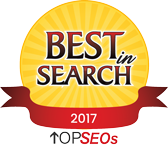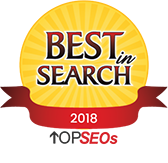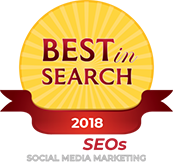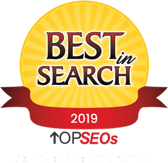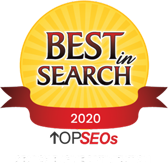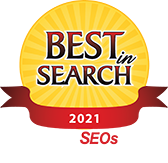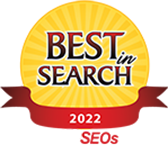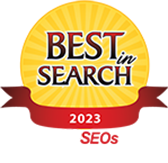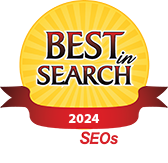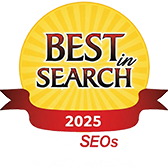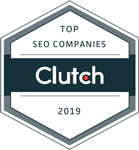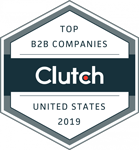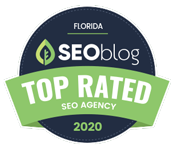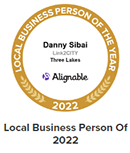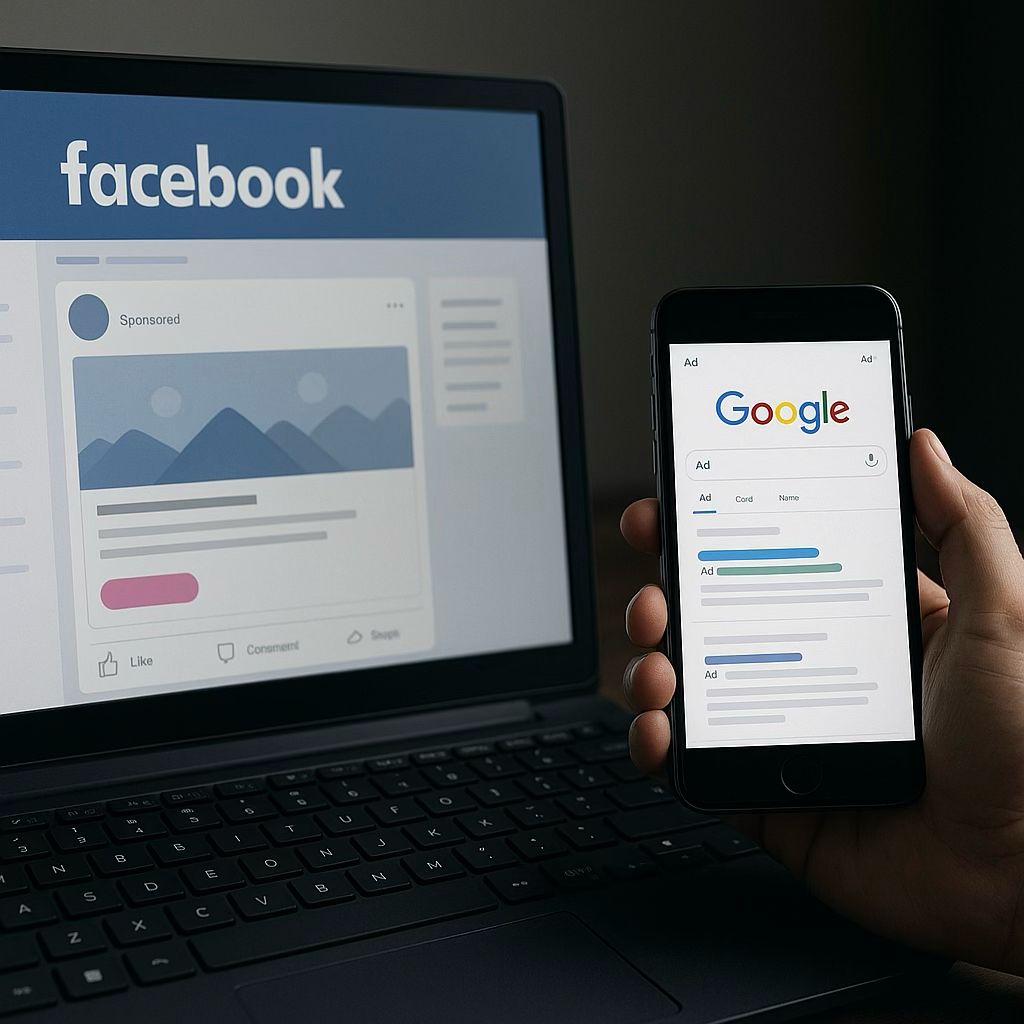
Paid Social Ads vs Google Ads: Which is More Beneficial? covers all what you must understand about PPC management for small businesses. Besides, it will also figure out ways to have more effective results.
Welcome once again towards our all-encompassing guide for aiding small corporate houses in PPC Management. Presented here is what PPC management is for small businesses, and it will also be equally helpful to those new to the Paid Advertising Strategy Industry.
Understanding all that separates Paid Social Ads from Google Ads opens new doors for revenue gains, better ROI, and simpler advertising.
What is PPC management for small businesses?
PPC management for small businesses is the management of paid search advertising campaigns on a limited budget. This is aimed at targeting niche areas and particular audiences with an ad on benefit of optimizing the spend, but to bring in the most qualified leads from keyword concentration and audience segmentation to platform choice, as well as analysis of such campaigns on an ongoing basis.
PPC platforms such as Google Ads and Paid Social Ads (e.g., Facebook, Instagram, LinkedIn) simply allow advertisers to bid for where their ads will appear in search results or ads will appear on a user's feed. Large enterprises are most likely known for having large budgets that equate to owning dedicated teams; such a luxury, however, is not for small businesses, which usually translates to effective yet lean approaches to maximize every dollar spent.
Actually, of its essence PPC management requires keyword development, planning budgets, A/B testing, keeping the track of performance, and making necessary campaign adjustments to reach your business goals, making it easy for you to launch an advertisement on most of these platforms while advancements in those fields make those manifestations more complex, especially when you try measuring the effectiveness of different platforms for targeting your audience.
Why PPC management for small businesses Matters for Paid Advertising Strategy
Whether you're running a service-based, product-driven, B2B, or B2C, pay per click (PPC) should be a crucial part of a company's digital marketing initiatives. Here is why:
- Lowers Costs: Small businesses have less to spend with their tight budgets. An integrated PPC strategy will make certain that advertising dollars get used where the returns are maximum.
- Highly Targeted Reach: Both Google and social media platforms make targeting more specific. It includes from keywords to demographics and behavior that makes the business reach its ideal consumer base.
- Measurable Results: Every click, impression, and conversion becomes trackable. Data on how these have turned out in the campaigns driver's seats and they can bring results at the situation's immediacy.
- Earlier Results Than SEO: SEO typically takes some time to draw organic traffic while PPC provides instant visibility and leads generation opportunities the very day it starts.
Small businesses can compete with larger brands, enter new markets, and try out marketing messages with the right PPC management even before having fully scaled out their budget. A typical example of small businesses needing PPC services is a local bakery planning a promotion of its custom wedding cakes. Here, Google Ads will be beneficial as one could bid on keyword searches like “wedding cakes near me” and at the same time launch Instagram campaigns with creative visuals targeting persons probably having a wedding.
Paid Advertising Comparison: Google Ads vs. Paid Social Ads
When choosing between Google Ads and Paid Social Ads, deciding PPC management becomes even more significant. Both types of initiatives contain advantages as well as disadvantages, and weigh your choice depending on your target group, budget and campaign goal. Informative here is a side-by-side comparison of both paid advertisement forms that underscores critical differences:
|
Platform |
Audience Intent |
Best For |
Ad Formats |
Targeting Options
|
|
Google Ads |
High intent (search-based) |
Capture existing demand |
Text ads, display, video, shopping |
Keyword targeting, demographics, location |
|
Paid Social Ads (Facebook, Instagram, LinkedIn) |
Low to medium intent (discovery-based) |
Create demand & build awareness |
Image, video, carousel, stories |
Demographics, interests, behavior, lookalikes |
A vast majority of the users on Google Ads are reflective search mode users; that is, they eventually find a company when they search. This conforms to the established trends among Social Media users: a certain number passively watch brands as they make rounds of their feed stream. This difference in intent can significantly impact a campaign's performance. Take a tiny landscape business, for instance. Some people just Googling a term such as "landscaper in Charlotte, NC" are virtually lying in wait in the market for that service. On the contrary, a Facebook ad may look for signal about a homeowner from his age, amount he makes, and even his house ownership status, in order to enlighten him of a certain benefit of landscaping that he might not have thought about.
Thus, PPC management for small businesses is not simply deciding which platform to use over the other but then both mingled as according to campaign goals and the customer journey stages. Many small businesses go for a mix strategy---Google Ads for conversions and Paid Social Ads for awareness and retargeting.
A well-developed PPC strategy takes advantage of the strength of each entity and mitigates its weakness so that any small business can compete effectively with the biggest guy on the platform regardless of the industry size or level of competition. We will proceed with the campaign setup, testing, and finally the optimization tactics for added insight.
Understanding the impact of PPC management for small businesses on the paid advertising benchmarking performance may literate failure or success. Let's look at a few real examples in the next part.
Benefits of PPC management for small businesses
- PPC Management for small companies helps bring your brand right in front of your target market. It will cause that happen at the very moment when they search you out in the future. Unlike organic searches, which can take months to rank, or even not in the first instance, PPC delivers immediate exposure that allows small businesses to get leads and generate sales more quickly.
- Pay for your campaign based on real-time performance, thanks to sustainable growth that develops into Paid Marketing Strategy; it eventually lets businesses expand campaigns across channels. Moreover, Google Ads that professionalize PPC boast extensive data and reporting tools that makes it easy for businesses to modify ad spend, check different keywords - and messaging will all be refined over time.
- The structure is meant to keep things simple. The interfaces of these applications, specifically Google Ads or Microsoft Ads, are so user-friendly as to provide smart campaigns, which are automated bidding strategies, and would be incredibly helpful for smaller teams or solo entrepreneurs in being able to deploy effective campaigns despite the scarcity of financial means in addition to very negligible technical know-how.
PPC management for small businesses vs. Alternatives
|
Criteria |
PPC management for small businesses |
Alternative
|
|
Effectiveness |
High |
Moderate |
|
Ease of Use |
Simple |
More Complex |
|
SEO Impact |
Strong |
Varies |
The direct comparison of paid advertising brings out the advantage of PPC management small businesses often prefer; return on investment is speedy in tight budgets, rapid-specific targeting. Although there is a recurring value in alternatives such as SEO or organic social if viewed over time, the investment in terms of time is rather long as the fine-scaled performance control with respect to return on investment is complicated without allowance from pay-per-click.
Implementing PPC management for small businesses in Real Scenarios
Start with a look across the spaces of comparison in your present paid advertising implementation. This tactic uses a keyword tool and some content audits to help you find great places you can exploit. Tailor your content to the user's intentions and their behavior when searching.
Initiate the document using the overall goals for business, which might revolve around lead generation, e-commerce sales, or brand recognition. Find high-converting keywords within your industry by using Google Keyword Planner or SEMrush. This could involve the targeting of different: branded and non-branded keywords, leading buyers from being top of mind to actually researching.
Design, therefore, be regulated in accordance with the continuity of these elements and constitutes a perspective of creating the necessary landing pages for score quality. Such landing pages need to follow closely with the message and intent brought through the ads, which is in line with effective implementation-to wit: providing specific offers or launching new products, or providing services to local interest groups. Most often, most of the really bad performing PPC campaigns can be traced back to an even worse landing page experience.
For illustration a small law practice could carry out a PPC campaign on "affordable legal consultation." An effective real-world implementation would need the ad created around a keyword driving traffic to the local landing page representing a free 15 minutes session. The word utility is borne upfront in the ad and leverages various location-based extension tools so that all nearby users- those most likely to utilize the service- are able to find the offering service area clearly defined through visibility optimization.
"I urge you to integrate the features of geotargeting and time scheduling so that the budget for ads can be channeled appropriately, and customers will be shown promotional ads only when they are most active or prone to conversion on the internet. For instance, if data reveals most of the conversions occur on weekdays, between 9AM-6PM, ensure that campaigns run within these time windows."
One of the best practices for a business with little budget is to have its ads run whenever the highest number of audiences is around and logged in, of which one such case might be a situation where it has been seen that the highest conversions seeing your ad actually happens on weekdays, exactly between 9AM and 6PM-which signifies you should keep your ad campaign closed at this hour.
Measure the campaign performance with the different sets of metro metrics inclusive of CTR, CPC, conversion rates, and return on invest in advertising. By using the results, the client would likely use AB test the advertisements presented on the background and enhance any adjustments to be done. It is becoming more effective for smaller companies in managing their PPC as it continues with regular optimization and data analysis.
Always adopt automation tools and also AI-enabled recommendations inside your advertising platforms. For smaller businesses with less experience but are constrained with time, either the Smart Campaigns or even the Performance Max campaigns of Google Ads could be really beneficial. These tools employ their own intelligence in their activities, adjusting bidding strategies and advertising placements on the basis of real-time behavioral data, making day-to-day management a lot simpler.
It will propel PPC from transient to long-standing short-term tactics employed in any Paid Advertising Strategy. Promoting on pain points-specifically time of year but also longer-term brand-building initiatives-becomes much more competitive for small businesses against multinational major rivals present in the same digital space if a company uses expert PPC management.
Frequently Asked Questions
What is PPC management for small businesses in simple terms?
PPC management for small businesses is a strategy or concept used to improve paid advertising comparison by focusing on structured, intentional methods.
How does PPC management for small businesses help?
It helps improve performance by aligning your content with search behavior and industry best practices.
Can I apply PPC management for small businesses myself?
Absolutely. With the right tools and structure, even beginners can begin applying these principles effectively.
What tools should I use?
Start with Google Search Console, SEMrush, and keyword research tools. These provide visibility into how PPC management for small businesses impacts performance.
Implementing PPC Management: Where to Start
You are working hard to expand your small business by using digital channels. Doing ppc properly can be very effective for you in this case. First of all, you should have clear targets set for your campaign. Are you looking to drive more traffic, conversions, or more leads towards your business? The objective will give you firm footing on which to base an intelligent PPC strategy.
Focus your attention first on targeting your audience. Google Ads, as well as Microsoft Advertising, offer exhaustive targeting by demographics, geography, the nature of the device employed, and many other possibilities. Employ these features so that you do not spend money on clicks that would not convert at all.
Particularly important is appropriate budgeting. Daily budget caps help small businesses control costs. Instead of stretching the budget across many campaigns, start with your top-performing ads and keywords, make some priorities, and improve focused intent, which ensures that every dime spent is used most effectively.
Paid Advertising Comparison: PPC vs Other Formats
In comparing paid advertising, it is crucial to weigh the pros and cons of PPC vis-a-vis other channels; examples might include advertising on display, social media ads, or getting influencers on board. We drive ROI with our account management-drastically so. You only pay when someone clicks, which makes it so much easier to figure out your cost per conversion and other important metrics.
Display and social media campaigns would probably be optimized toward the extension and engagement of the company rather than direct sales. Positioning this practice in an influential place toward the wider marketing strategy, managing PPC for small businesses generally results more directly and tangibly in the short term.
Tips for Continued Improvement
Continuous improvement is particularly important with A/B testing in part of a PPC management routine. Test different ad copy, images-CTAs, and customize landing pages, while keeping an eye on what data from tools like Google Analytics and SEMrush has to say about workability or unworkability in your PPC management department.
Neglecting the importance of having negative keywords, which stops your ads from showing with irrelevant searches and hence your budget is well spent and overall CTR improves. There are seasonal changes in the keyword list concerning trending topics and information from customers, so the lists must be reviewed at fixed periods.
Finally, your mobile optimized version should run across all paid search advertising. Half of the web traffic comes via mobile, so your landing pages need to be quick to load and totally effective on small screens.
Next Steps
Seize control of your business growth through intelligent advertising. If you are new to campaigns or enjoy the benefits, PPC management by professionals will be very beneficial. Ask for your free digital marketing consultation today!
Your Action Plan Starts Here
Explore these resources to elevate your PPC strategies and make data-backed decisions:
- PPC Services at Link2City
- Schedule Your Free Consultation
- Small Business PPC Tactics – WordStream
- Google Ads Official Resources
Still wondering how to best manage your PPC campaigns? Talk to an expert who understands your unique business needs.




